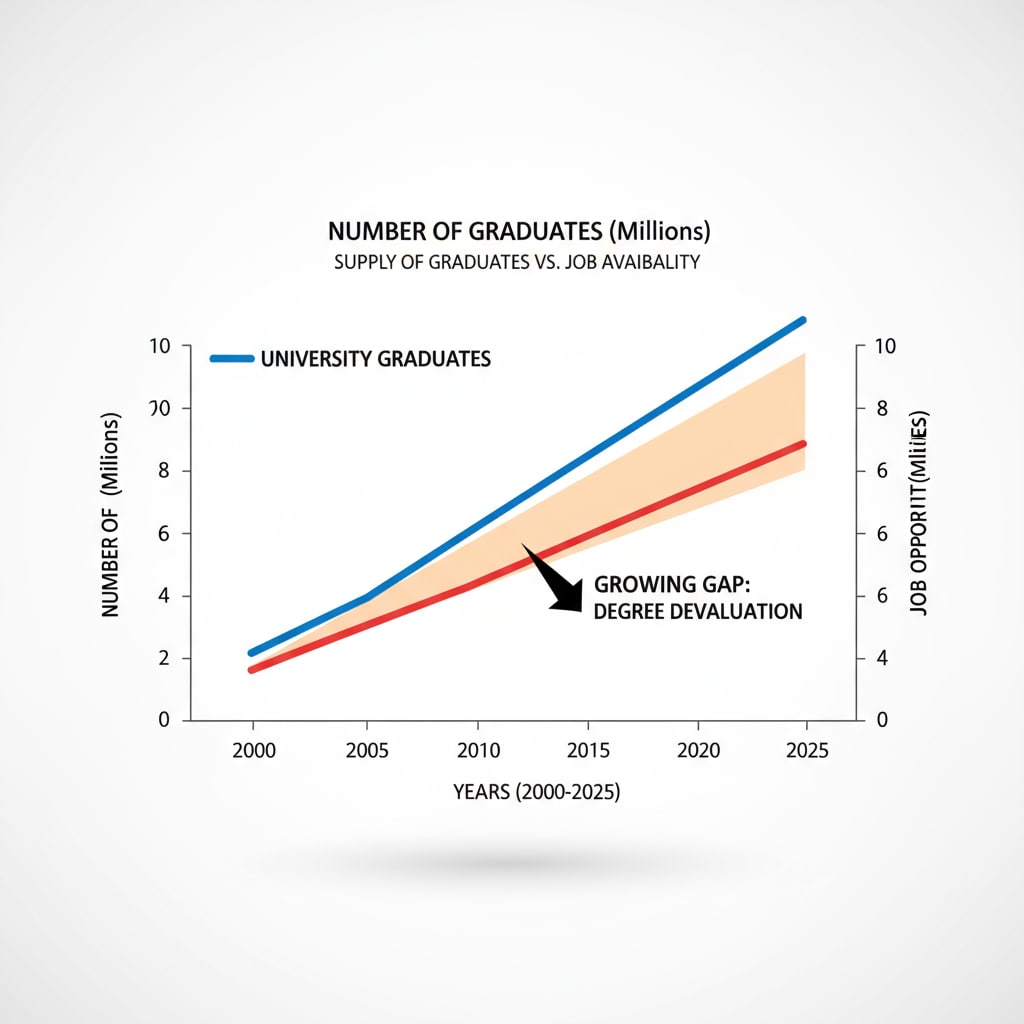The value of university degrees in the employment market has long been a topic of great interest. In recent years, with an increasing number of highly educated individuals flooding into the low-skill job market, the question of just how much a university diploma is worth has come under intense scrutiny. This article aims to delve into the current phenomenon of degree devaluation, analyze its underlying causes, and offer practical suggestions for K12 students and parents to navigate this educational dilemma.

The Alarming Trend of Degree Devaluation
The job market today is witnessing a concerning trend of degree devaluation. Once a symbol of high achievement and a ticket to a well-paying job, university degrees are now facing challenges. For example, many graduates find themselves competing for positions that previously did not require a degree. According to Bureau of Labor Statistics, the supply of college graduates has far outpaced the demand in some industries. As a result, the value of degrees has been somewhat diluted.
Factors Behind the Decline in Degree Value
There are several factors contributing to this decline. Firstly, the rapid expansion of higher education institutions has led to a significant increase in the number of graduates. More people are obtaining degrees, which has saturated the job market. Secondly, the skills gap between what universities teach and what employers need is widening. Many graduates lack practical skills and real-world experience. As reported by National Association of Colleges and Employers, employers often seek candidates with problem-solving and communication skills, which may not be adequately emphasized in traditional university curricula.

Another factor is the rise of alternative education paths. Online courses, vocational training, and apprenticeships are becoming more popular. These options can provide specialized skills and knowledge at a faster pace and lower cost, offering stiff competition to traditional university degrees.
Readability guidance: The key points here are the factors causing degree devaluation. The short paragraphs help break down complex ideas. Transition words like “firstly”, “secondly” make the flow smooth. The use of external links adds credibility.


